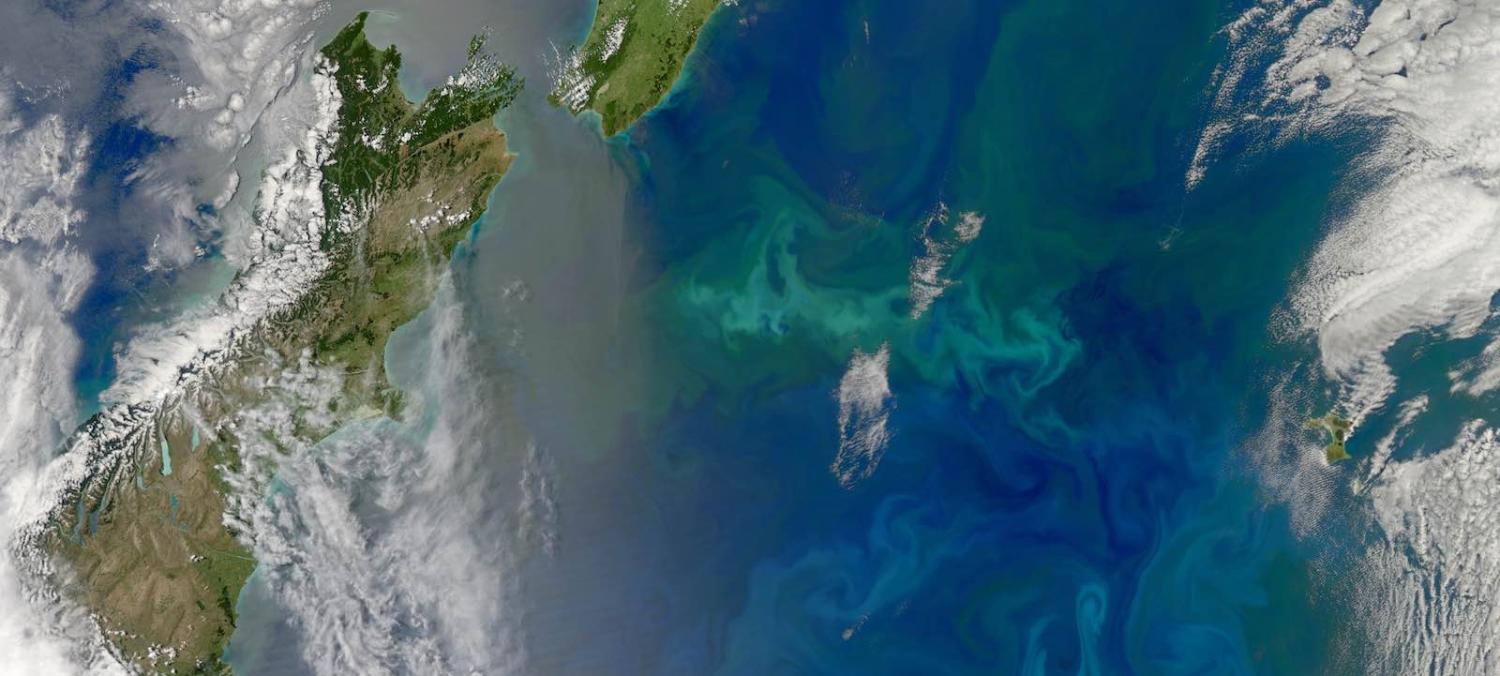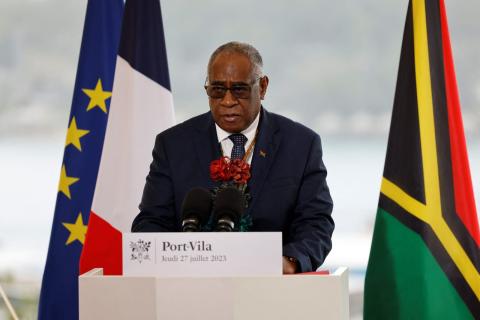Ahead of next month’s meeting of Pacific Islands Forum leaders in Nauru, the region’s foreign ministers met recently in Apia, Samoa. The Forum Foreign Ministers’ Meeting is one of two standing ministerial meetings in the region (the other is the Forum Economic Ministers’ Meeting). The 2018 meeting was the third and it retains a fairly low profile, despite the significance that it has in finalising the agenda for the Leaders’ summit.
The 10 August meeting of foreign ministers was perhaps most interesting for who was there, and (possibly more so) who was not. There have been some notable changes to the line-up since last year, which no doubt had an impact on proceedings.
A larger concern is to ensure that discussions about regional security are focused on issues that matter for the majority, and not the geo-strategic preoccupations of the few.
Two new faces at this gathering that would be expected to make their presence felt were Vanuatu’s Ralph Regenvanu and New Zealand’s Winston Peters.
In a recent interview, Regenvanu signalled very clearly that he saw engagement at the Pacific Islands Forum as a key priority for Vanuatu, including to progress the cause of self-determination for West Papua. So it should not have come as a surprise to see that Vanuatu tabled an agenda item in Apia seeking regional support for a proposed resolution to go the UN General Assembly to have West Papua reinscribed on the decolonisation list. Unsurprisingly, this was “met with demur” by Papua New Guinea, Fiji, and Australia, while other countries made no comment.
It will be interesting to see how this unfolds at the Leaders’ meeting next month. Vanuatu is also seeking support from the region to gain a seat on the UN Special Committee on Decolonisation (C24), and has newly appointed Lora Lini as Special Envoy for West Papua.
For Peters, this was the first such meeting since he resumed the foreign affairs portfolio in Wellington, and his first chance to meet with Pacific counterparts since the announcement of the “Pacific reset” by the Ardern government this year. No doubt, the foreign ministers of the island countries were keen to hear from Peters what this reset will involve, given details have been fairly scant to date.
Yet noticeable by her absence was Australia’s Foreign Minister Julie Bishop. This was especially so given Bishop had been in Apia the day before with a busy agenda, including meeting the Samoan Prime Minister, and her New Zealand counterpart, launching the Australia Pacific Training Coalition, and opening a new radio broadcast tower.
Bishop returned to Australia ahead of the foreign ministers’ meeting, leaving then Pacific and International Development Minister Concetta Fierravanti-Wells to lead the delegation. Bishop’s absence from the formal proceedings was disappointing in this era of oft-promised “stepped up” engagement by Australia. I asked Bishop’s office why she did not attend and was told: “The Foreign Minister had duties in Australia as Deputy Leader of the Liberal Party.” (She delivered a speech in Perth at the Western Australian Liberal State conference on 11 August.) With the subsequently uncertainty in Australian domestic politics following the leadership challenge in Canberra on Tuesday, there is now speculation Prime Minister Malcolm Turnbull may not attend the Leaders’ meeting in Nauru, which would compound a sense that Australia does not regard the Pacific as a priority.
A key area of focus for this meeting was reviewing and revising the text of the regional security agreement “Biketawa Plus”, which will now go to the meeting of Leaders for consideration. Despite, somewhat premature reporting in parts of the Australian media, this potential regional security agreement was still in development up to and during the foreign ministers’ deliberations – part of a prolonged and multi-faceted consultation and engagement process led by the Pacific Islands Forum Secretariat.
The current draft version of the text indicates some robust engagement on the part of the region’s foreign ministers. This has led to (among other things) an elevation of climate change as the “single greatest threat” the region faces, and a reduced emphasis on cyber security.
The draft text’s reference to a “recalling” of the principles of good governance, democracy, and the rule of law, is certainly a marked improvement on what was previously in place. However, it remains to be seen if this will be sufficient to quell the concerns of many in the region about where, if at all, democratic norms fit within a security-driven debate. This forms part of a larger concern to ensure that discussions about regional security are focused on issues that matter for the majority of Forum members, and not the geo-strategic preoccupations of the few.


